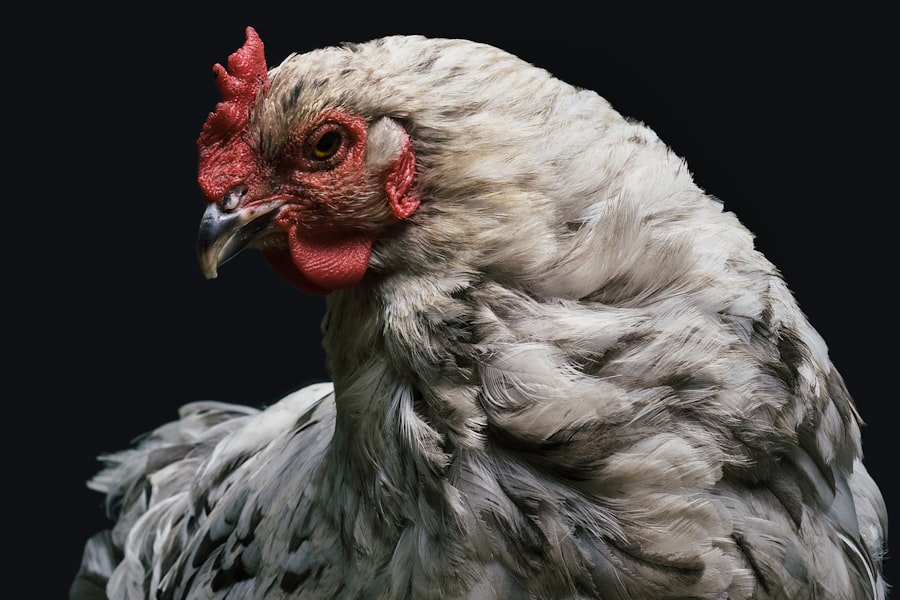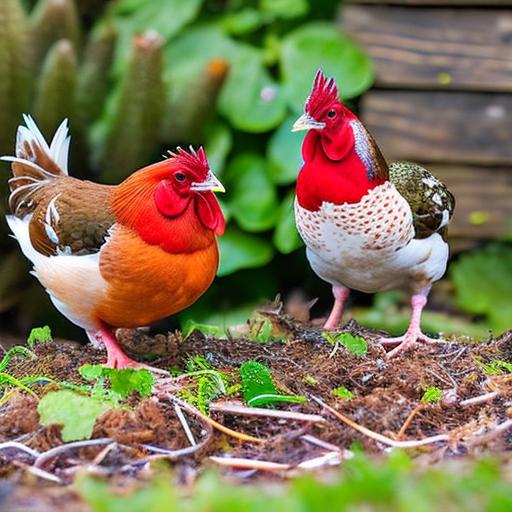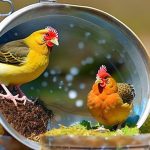Winter egg production can be a challenge for backyard chicken owners. As the days get shorter and colder, hens naturally decrease their egg production. However, with a little extra care and attention, it is possible to maintain a steady supply of fresh eggs throughout the winter months. In this blog post, we will discuss the challenges of winter egg production and provide tips for overcoming them. So grab a cup of hot cocoa and let’s dive in!
Key Takeaways
- Winter egg production can be challenging due to shorter days and colder temperatures.
- Maintaining optimal lighting conditions, warmth, and ventilation in the coop is crucial for egg production.
- Choosing the right chicken breeds for winter egg production can make a big difference.
- Feeding your chickens a balanced diet and providing plenty of fresh water is important for their health and egg production.
- Preventing common winter health issues, such as frostbite and respiratory infections, is key to ensuring a steady supply of fresh eggs all winter long.
Understanding the Challenges of Winter Egg Production
There are several reasons why egg production decreases in the winter. Firstly, the shorter days mean that hens have less daylight to stimulate egg production. Secondly, the colder temperatures can cause hens to divert their energy towards keeping warm rather than producing eggs. Lastly, the stress of cold weather can also affect the overall health and well-being of the hens, further impacting their egg-laying abilities.
Addressing these challenges is important to maintain egg production throughout the winter. Not only do fresh eggs provide a valuable source of nutrition, but they also bring joy and satisfaction to backyard chicken owners. By implementing some simple strategies, you can help your hens stay healthy and productive during the winter months.
Maintaining Optimal Lighting Conditions
Lighting plays a crucial role in egg production during the winter. Hens require a minimum of 14-16 hours of light per day to stimulate egg-laying. To maintain optimal lighting conditions in the coop, consider installing artificial lighting. Use a timer to ensure that the lights turn on early in the morning and stay on until late in the evening. This will help mimic natural daylight and encourage your hens to continue laying eggs.
It’s also important to keep in mind that hens need a period of darkness for rest and rejuvenation. Make sure to turn off the lights at night so that your hens can have uninterrupted sleep. Providing a consistent lighting schedule will help regulate their internal clocks and promote healthy egg production.
Keeping the Coop Warm and Dry
Keeping the coop warm and dry is essential for the health and well-being of your hens during the winter. Cold temperatures can be detrimental to egg production, as hens need to divert their energy towards staying warm rather than laying eggs. Insulating the coop is a great way to retain heat and provide a comfortable environment for your hens.
Start by sealing any drafts or gaps in the coop walls and windows. Use weatherstripping or caulk to prevent cold air from entering. Insulate the walls and roof with materials such as straw, hay, or foam insulation boards. This will help trap heat inside the coop and keep your hens cozy.
Moisture buildup can also be a problem in the winter, as it can lead to respiratory issues and frostbite. Make sure to provide proper ventilation to prevent condensation from forming inside the coop. This can be achieved by installing vents or windows that can be opened or closed as needed. Additionally, regularly clean out any wet bedding or droppings to maintain a dry environment.
Providing Adequate Ventilation
While it’s important to keep the coop warm, it’s equally important to provide adequate ventilation. Good ventilation helps remove excess moisture, ammonia, and odors from the coop, which can lead to respiratory issues in chickens. However, it’s crucial to strike a balance between ventilation and keeping out cold drafts.
One way to achieve this is by installing vents near the roofline of the coop. This allows warm air to escape without letting in too much cold air. You can also use adjustable vents that can be opened or closed depending on the weather conditions. It’s important to monitor the temperature and humidity levels inside the coop regularly to ensure that your hens are comfortable.
Choosing the Right Chicken Breeds for Winter Egg Production

Choosing the right chicken breeds for winter egg production is key to maintaining a steady supply of fresh eggs. Some breeds are more cold-hardy and better suited for winter conditions than others. These breeds have thicker feathers, smaller combs, and wattles that are less prone to frostbite.
Examples of cold-hardy breeds include Rhode Island Reds, Plymouth Rocks, and Wyandottes. These breeds are known for their ability to withstand cold temperatures and continue laying eggs throughout the winter. It’s important to do your research and choose breeds that are well-suited for your specific climate and conditions.
Feeding Your Chickens a Balanced Diet
A balanced diet is crucial for winter egg production. Hens require a variety of nutrients to maintain their health and lay eggs consistently. During the winter months, it’s important to provide your chickens with a high-quality layer feed that is specifically formulated for egg production.
In addition to layer feed, it’s also beneficial to supplement your hens’ diet with fresh fruits and vegetables. This will provide them with additional vitamins and minerals that may be lacking in their regular feed. Consider offering treats such as leafy greens, carrots, or pumpkin to keep your hens happy and healthy.
Offering Plenty of Fresh Water
Fresh water is essential for the health and well-being of your chickens, especially during the winter when dehydration can be a problem. However, keeping water from freezing can be a challenge in cold temperatures. One option is to use heated waterers or heated bases to prevent the water from freezing.
If you don’t have access to heated waterers, you can try using insulated water containers or placing a small floating object in the water to prevent it from freezing completely. Make sure to check the water regularly and replace it if it becomes dirty or frozen.
Preventing Common Winter Health Issues
Winter brings its own set of health issues for chickens. Cold temperatures can increase the risk of respiratory infections, frostbite, and mites. To prevent these issues, it’s important to provide a clean and dry environment for your hens.
Regularly clean out the coop and remove any wet bedding or droppings. This will help prevent the buildup of ammonia and bacteria that can lead to respiratory issues. Inspect your hens’ feet, combs, and wattles regularly for signs of frostbite. If you notice any redness or swelling, take steps to protect your hens from further exposure to cold temperatures.
Enjoying Fresh Eggs All Winter Long
With a little extra care and attention, it is possible to enjoy fresh eggs all winter long. By maintaining optimal lighting conditions, keeping the coop warm and dry, providing adequate ventilation, choosing the right chicken breeds, feeding a balanced diet, offering fresh water, and preventing common winter health issues, you can ensure that your hens stay healthy and productive throughout the winter months.
So bundle up, grab a warm drink, and enjoy the satisfaction of collecting fresh eggs from your backyard coop even in the coldest of winters. Your hens will thank you for it!
If you’re looking for ways to keep your chickens laying eggs during the winter, you might find this article on chicken coop portage from Poultry Wizard helpful. It provides valuable insights on how to design and maintain a portable chicken coop that allows your chickens to access fresh grass and sunlight even in colder months. By moving the coop around your yard, you can ensure that your chickens have access to the best foraging opportunities, which can help stimulate egg production. Check out the article here for more information.
FAQs
What is the reason why chickens stop laying eggs in the winter?
Chickens stop laying eggs in the winter due to the decrease in daylight hours and the drop in temperature.
How can I keep my chickens warm during the winter?
You can keep your chickens warm during the winter by insulating their coop, providing them with a heat source, and ensuring that their water doesn’t freeze.
What should I feed my chickens during the winter?
You should feed your chickens a balanced diet that includes protein, calcium, and vitamins. You can also supplement their diet with scratch grains and mealworms.
How can I ensure that my chickens have enough light during the winter?
You can ensure that your chickens have enough light during the winter by providing them with artificial light in their coop. This will help to stimulate egg production.
What are some common health issues that chickens face during the winter?
Some common health issues that chickens face during the winter include frostbite, respiratory infections, and dehydration.
How can I prevent my chickens from getting frostbite?
You can prevent your chickens from getting frostbite by keeping their coop dry and well-ventilated, providing them with a draft-free roosting area, and applying petroleum jelly to their combs and wattles.
What should I do if my chickens stop laying eggs during the winter?
If your chickens stop laying eggs during the winter, you should ensure that they are getting enough light and warmth, and that they are receiving a balanced diet. You can also try adding supplemental lighting to their coop to stimulate egg production.
Meet Walter, the feathered-friend fanatic of Florida! Nestled in the sunshine state, Walter struts through life with his feathered companions, clucking his way to happiness. With a coop that’s fancier than a five-star hotel, he’s the Don Juan of the chicken world. When he’s not teaching his hens to do the cha-cha, you’ll find him in a heated debate with his prized rooster, Sir Clucks-a-Lot. Walter’s poultry passion is no yolk; he’s the sunny-side-up guy you never knew you needed in your flock of friends!







